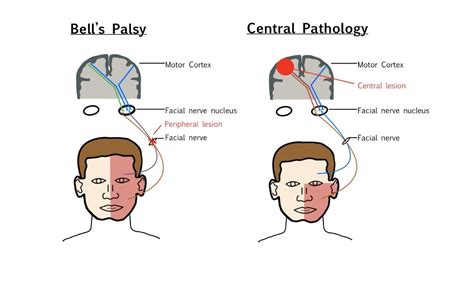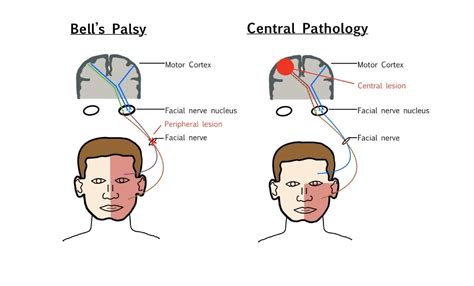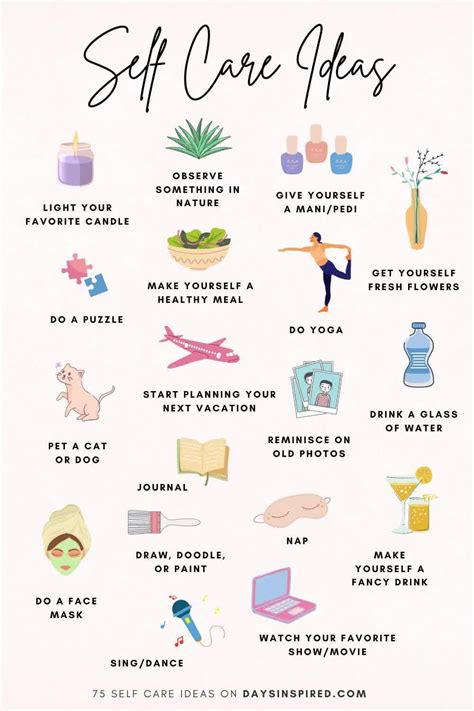Intro
Manage Bells Palsy symptoms with effective self-care. Discover 7 essential tips for facial paralysis recovery, including stress reduction, exercise, and nutrition, to alleviate symptoms and promote holistic healing and facial nerve rehabilitation.
Bell's palsy is a condition that affects the nerves in the face, causing weakness, numbness, or paralysis of the facial muscles. It can be a challenging and frustrating experience, but with the right self-care techniques, individuals can manage their symptoms and improve their overall well-being. In this article, we will explore the importance of self-care for Bell's palsy and provide 7 valuable tips to help individuals cope with this condition.
Bell's palsy can have a significant impact on a person's daily life, affecting their ability to communicate, eat, and even express emotions. The condition can also lead to feelings of anxiety, depression, and isolation, making it essential to prioritize self-care. By taking proactive steps to manage their symptoms and improve their physical and emotional health, individuals with Bell's palsy can regain control over their lives and enhance their overall quality of life.
The benefits of self-care for Bell's palsy are numerous. It can help reduce stress and anxiety, improve sleep quality, and boost mood. Self-care can also promote relaxation, reduce muscle tension, and improve facial mobility. Furthermore, self-care can help individuals with Bell's palsy develop a positive mindset, build confidence, and reconnect with their body and emotions. By incorporating self-care into their daily routine, individuals can take the first step towards managing their symptoms and achieving optimal wellness.
Understanding Bell's Palsy

Causes and Symptoms of Bell's Palsy
Bell's palsy is caused by inflammation or compression of the facial nerve, which can be triggered by a variety of factors, including viral infections, autoimmune disorders, and trauma. The symptoms of Bell's palsy can vary in severity and may include weakness or paralysis of the facial muscles, numbness or tingling, drooping eyelids, and difficulty speaking or eating. Understanding the causes and symptoms of Bell's palsy is crucial for developing a self-care plan that addresses the unique needs and challenges of the condition.7 Tips for Bell's Palsy Self-Care

- Practice Facial Exercises: Facial exercises can help improve facial mobility, reduce muscle tension, and promote relaxation. Individuals with Bell's palsy can try simple exercises like smiling, frowning, and puckering their lips to stimulate the facial muscles.
- Use Moist Heat: Applying moist heat to the affected area can help reduce pain and discomfort. Individuals can use a warm washcloth or a heating pad to soothe the facial muscles and promote relaxation.
- Manage Stress: Stress can exacerbate the symptoms of Bell's palsy, making it essential to manage stress levels. Individuals can try stress-reducing techniques like meditation, deep breathing, or yoga to promote relaxation and calmness.
- Get Enough Sleep: Sleep is essential for overall health and well-being, and individuals with Bell's palsy should prioritize getting enough rest. Aim for 7-8 hours of sleep per night to help the body repair and recover.
- Stay Hydrated: Drinking plenty of water can help keep the facial muscles hydrated and promote healing. Individuals with Bell's palsy should aim to drink at least 8 cups of water per day to stay hydrated and support overall health.
- Protect the Eyes: Bell's palsy can cause dryness and irritation in the eyes, making it essential to protect them. Individuals can use eye drops or ointments to keep the eyes moist and comfortable.
- Seek Support: Bell's palsy can be a challenging and isolating experience, making it essential to seek support from family, friends, or a support group. Connecting with others who understand the condition can help individuals cope with their emotions and develop a positive mindset.
Additional Self-Care Techniques

- Acupuncture: This traditional Chinese medicine technique involves inserting small needles into specific points on the body to stimulate healing and relaxation.
- Massage Therapy: Massage can help reduce muscle tension, promote relaxation, and improve facial mobility.
- Herbal Remedies: Certain herbs like turmeric, ginger, and peppermint may have anti-inflammatory properties that can help reduce pain and discomfort.
- Relaxation Techniques: Techniques like progressive muscle relaxation, visualization, and mindfulness meditation can help reduce stress and promote relaxation.
Benefits of Self-Care for Bell's Palsy
The benefits of self-care for Bell's palsy are numerous. By prioritizing self-care, individuals can:- Reduce stress and anxiety
- Improve sleep quality
- Boost mood
- Promote relaxation
- Reduce muscle tension
- Improve facial mobility
- Develop a positive mindset
- Build confidence
- Reconnect with their body and emotions
Conclusion and Next Steps

We invite you to share your thoughts and experiences with Bell's palsy self-care in the comments below. How do you manage your symptoms, and what self-care techniques have you found most helpful? Share your story to help others who may be struggling with this condition.
What are the most common symptoms of Bell's palsy?
+The most common symptoms of Bell's palsy include weakness or paralysis of the facial muscles, numbness or tingling, drooping eyelids, and difficulty speaking or eating.
How long does it take to recover from Bell's palsy?
+Recovery from Bell's palsy can vary from person to person, but most individuals can expect to see significant improvement within 2-3 weeks. Full recovery can take several months.
Can Bell's palsy be prevented?
+While there is no guaranteed way to prevent Bell's palsy, individuals can reduce their risk by managing stress, getting enough sleep, and staying hydrated.
